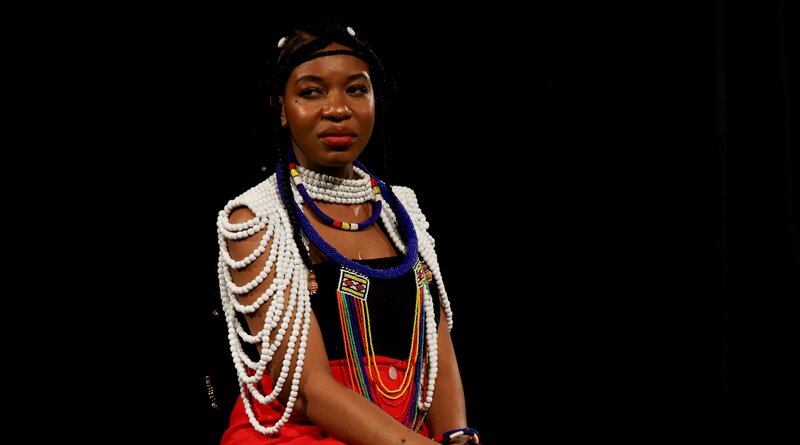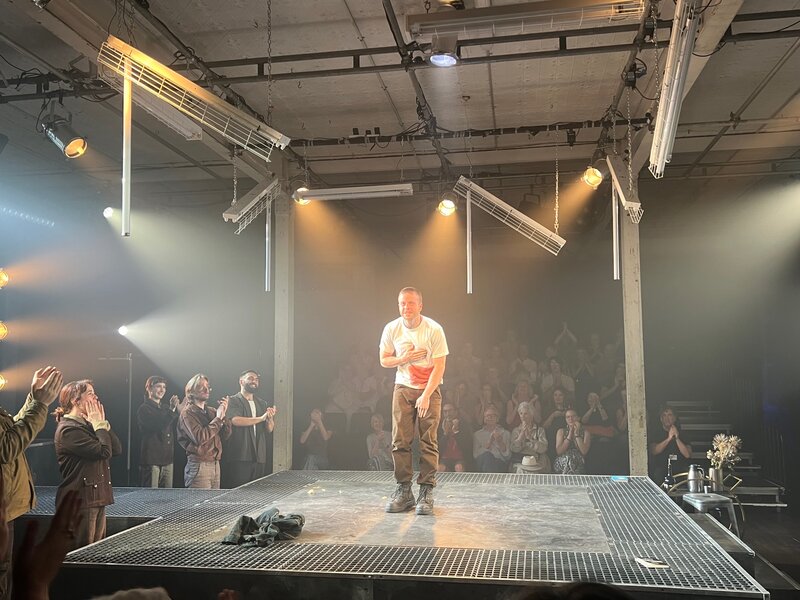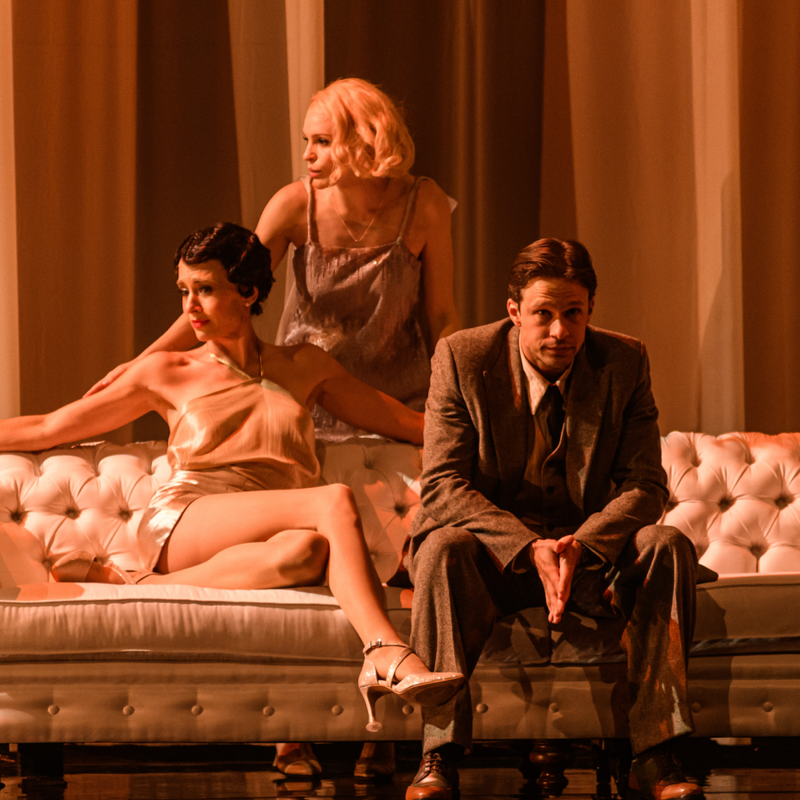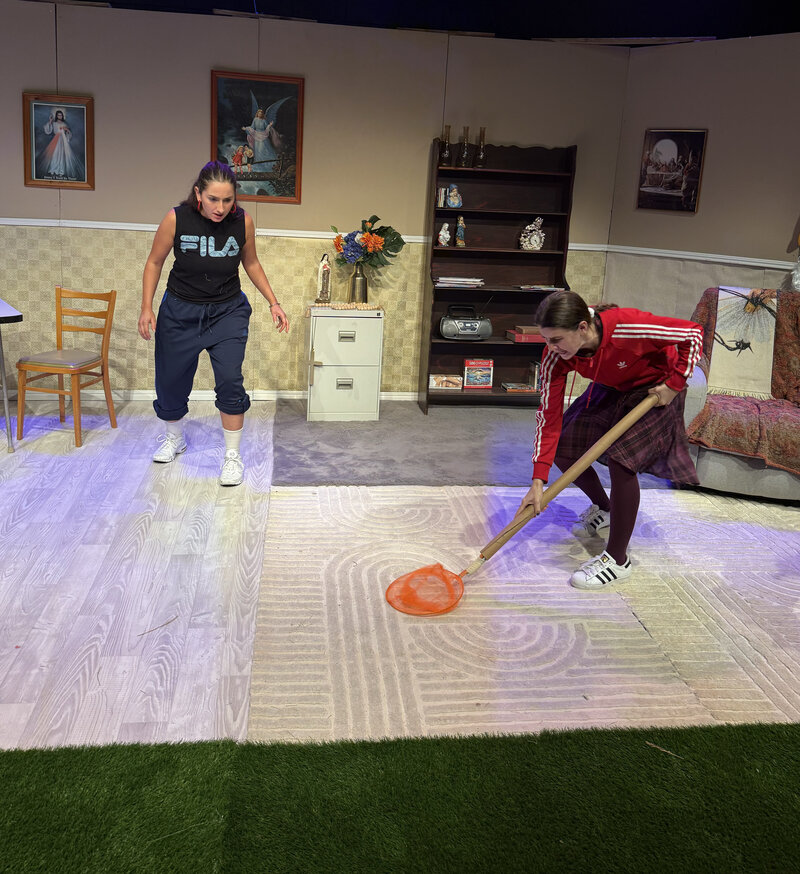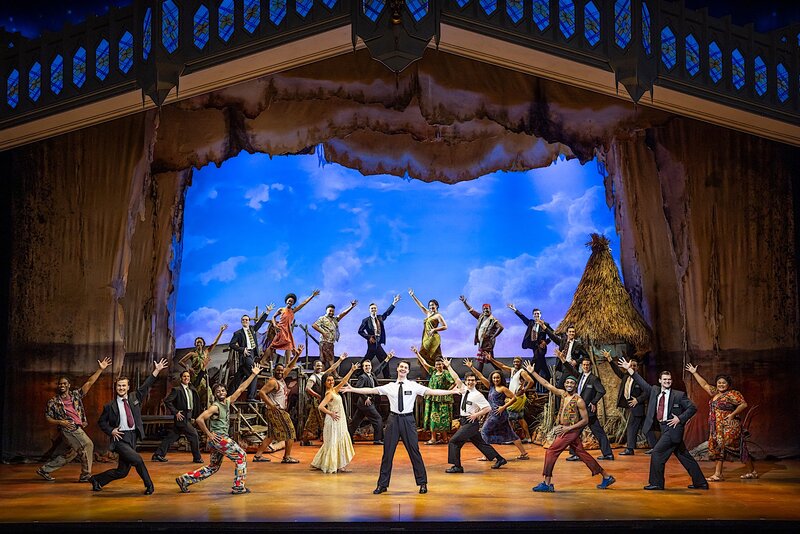The Regina Monologues looks at strong royal women through history and the obstacles they faced … and continue to endure. Most of those featured are no longer with us, but the trials and quandaries they encountered are laid bare. They were often held back because they were women, or of colour, or of particular faith. Impediments were everywhere … and yet they overcame.
The Regina Monologues presents them as women of power, privilege and purpose, who were able to strategise and achieve. 24 Carrot Production’s theatrical experience features 13 women in 12 vignettes – each lasting about 10 to 15 minutes – in three spaces used concurrently. We – the audience – are invited to move around freely between these areas.

The production kicks off with the only duo of the evening and deals with Eleanor of Aquitaine (Sonia Marcon) – queen consort of France and England in the 12th century – speaking with her deceased mother-in-law. The pair does not get along and yet Empress Matilda of England (Madlyn McCandless) has “returned” to answer any three questions Eleanor wishes to ask her.
Empress Elisabeth of Austria (Emily Scerri), who lived in the 19th century, presents herself as one of the most beautiful women in Europe, well read and considered, chosen ahead of her sister to marry the Emperor. Born into a ruling family, Queen Nzinga Mbande (Serious Meerkat) faced a series of political crises and betrayals as an ambassador to the Portuguese Empire in the 17th century.
As Queen Consort of Holland in the 19th century, Hortense Bonaparte (Emma Jevons) married Napoleon’s brother and provides us with a step-by-step guide – complete with slides – on how to be a princess. In Greek mythology, Persephone (Avril Good) became Queen of the Underworld after her abduction by Hades. She was also Goddess of Spring. She navigates this “contradiction” and points out how her mother believes she was tricked into marrying the god of the dead.
In the only modern day adaptation I saw (I witnessed nine of the 12 vignettes), Empress Himiko of Japan (Seon Williams) bemoans white people telling her story, as she denounces the 2018 version of the movie Tomb Raider.
In a parallel to the current COVID-19 vaccination debate, Catherine the Great (Danielle Robinson) implores Russians to vaccinate against smallpox during the 18th century. She explains how she takes her responsibility of caring for Russia seriously, even though she was born German.
Isabella of Castille (Joana F. Costa) tries to justify expelling Muslims and Jews from Spain during the 15th century with keeping the country Christian. She also talks up telling Christopher Columbus that she doesn’t want Spaniards to be enslaved.
The Regina Monologues ends with a compelling and assured performance by Fiona Crombie as Mary Queen of Scots, beheaded for plotting against Queen Elizabeth I in the 16th century. She presents the Catholic versus Protestant debate and how she was “fire” to Elizabeth’s “ice”, who she claims had good reason to be afraid.
The majority of the “characters” are dressed in period costumes, including elegant and beautiful flowing gowns. I found The Regina Monologues – written and directed by Sharmini Kumar – to be an intriguing watch, its diversity of characterisations giving it extra bite. It has humour and heart and is entertaining and educative.
 My only gripe was that the nature of the venue – being the Meat Market Stables in North Melbourne – means that the verbiage delivered in one space frequently spills over into another. Trying to concentrate on what is in front of you is made significantly harder when you are hearing loud sounds from another room. In fact, at times it drowned out the chatter taking place but metres away.
My only gripe was that the nature of the venue – being the Meat Market Stables in North Melbourne – means that the verbiage delivered in one space frequently spills over into another. Trying to concentrate on what is in front of you is made significantly harder when you are hearing loud sounds from another room. In fact, at times it drowned out the chatter taking place but metres away.
Overall, though, I appreciated the strength of the material and the way it was presented. The Regina Monologues is playing until 4th July, 2021. For more information, go to https://www.24carrotproductions.com
Alex First
Other reviews you might enjoy:
- The Queen’s Nanny (Ensemble Theatre) – theatre review
- Minefields and Miniskirts (Arts Theatre) – theatre review
- Chemistry (The Little Theatre Co) – theatre review

Alex First is the editor of The Blurb. Alex is a Melbourne based journalist and communications specialist. He also contributes to The Blurb on film and theatre.

